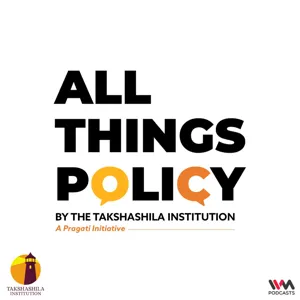Understanding the MPCE

The data on Monthly Per capita Consumption Expenditure was released last week. How should we read this data? How can it inform policy making at various levels? Sarthak and Suman discuss in this episode of All Things Policy.
Do check out Takshashila’s public policy courses: https://school.takshashila.org.in/courses
We are @IVMPodcasts on Facebook, Twitter, & Instagram.
https://twitter.com/IVMPodcasts
https://www.instagram.com/ivmpodcasts/?hl=en
https://www.facebook.com/ivmpodcasts/
You can check out our website at https://shows.ivmpodcasts.com/featured
Follow the show across platforms:
Spotify, Google Podcasts, Apple Podcasts, JioSaavn, Gaana, Amazon Music
Do share the word with your f
See omnystudio.com/listener for privacy information.
